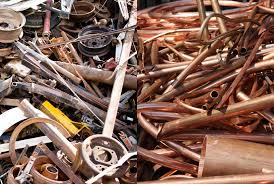Table of Contents
- Introduction
- Understanding Non-Ferrous Metals
- Energy Savings Through Recycling
- Preserving Natural Resources
- Reducing Environmental Impact
- Economic Benefits of Recycling
- Enhancing Supply Chain Security
- Steps to Improve Metal Recycling
- Conclusion
Non-ferrous metal recycling is a powerful tool in efforts to safeguard the planet’s finite resources. As industries and consumers alike seek more sustainable options, the reprocessing of metals such as aluminum, copper, brass, and others emerges as a cornerstone of effective resource management. By choosing recycling services for non-ferrous metal scrap, individuals and organizations can dramatically reduce reliance on primary raw material extraction, resulting in a substantial positive environmental impact. Recycling non-ferrous metals reduces ore mining, preserves landscapes, decreases pollution, and lowers energy consumption, benefiting ecological health and supporting regulatory compliance. This sustainable strategy offers notable economic advantages and promotes energy savings, making it essential for industries to understand the recycling process and its impact on the supply chain. The article highlights the comprehensive benefits of recycling non-ferrous metals and offers actionable steps for promoting a greener future.
Understanding Non-Ferrous Metals
Non-ferrous metals, such as aluminum, copper, lead, zinc, and tin, contain little to no iron and are renowned for their versatile properties. Lightweight, durable, and resistant to rust, these materials are indispensable in sectors including construction, transportation, and communications. For instance, aluminum’s corrosion resistance makes it invaluable in aerospace and packaging, while copper’s superb conductivity underpins the electrical and electronics industries. Unlike ferrous metals, non-ferrous variants are often more expensive and finite, heightening the urgency for efficient recycling. Their inherent value and continuous recyclability—without a loss of properties—make them ideal candidates for a sustainable circular economy.
Energy Savings Through Recycling
The energy required to extract and process non-ferrous metals from virgin ore is immense. Recycling provides an effective alternative. According to the Environmental Protection Agency, recycling aluminum saves up to 95% of the energy required for primary production, while recycling copper reduces energy consumption by approximately 85%. Lower energy usage results in decreased fossil fuel consumption, which in turn minimizes greenhouse gas emissions and reduces electricity demand. This not only supports the climate goals outlined in international agreements, but it also enables industries to reduce operating expenses and remain competitive.
Preserving Natural Resources
Mining for virgin metals is associated with ecological disruptions, including deforestation, biodiversity loss, and water contamination. By reusing valuable metals already in circulation, recycling helps conserve untouched natural habitats and the essential resources required for mining, such as water and land. Over time, this translates into healthier ecosystems and preserved biodiversity. For communities and countries with limited ore reserves, a robust recycling program ensures long-term sustainability and access to critical materials, reducing vulnerabilities related to extraction and supply shortages.
Reducing Environmental Impact
Extractive industries, particularly those involved in metal mining, are among the leading causes of land degradation, air pollution, and toxic runoff. Recycling non-ferrous metals curbs hazardous emissions and helps keep valuable materials out of landfills, thereby reducing environmental liabilities and health risks. Metals, when improperly discarded, can leach into water systems, harming wildlife and potentially affecting human health. Responsible recycling closes the loop—transforming potential pollution sources into valuable industrial inputs and supporting global environmental objectives.
Economic Benefits of Recycling
Recycling provides cost savings for manufacturers, reduces dependency on volatile global markets, and boosts job creation in both the recycling and manufacturing sectors. Non-ferrous metals, prized for their constant quality upon recycling, often command high resale value, driving lucrative secondary markets and incentivizing collection and processing. This symbiotic relationship between recycling and manufacturing strengthens local economies and encourages innovation in material recovery and processing. In addition, recycling helps companies comply with increasingly strict environmental standards and may open doors to incentive programs or tax benefits centered on sustainability and emissions reduction.
read more : Balancing Comfort and Style in Modern Living Spaces
Enhancing Supply Chain Security
The global demand for non-ferrous metals can lead to supply chain vulnerabilities—especially for countries lacking significant natural reserves. Recycling reduces this dependency by supplementing domestic resources, allowing for greater resilience against global market disruptions or political instability. China, for example, has strategically promoted the use of recycled metals to bolster resource security and reduce costs in manufacturing industries. In a world of fluctuating resource supplies, recycling ensures a steady and reliable metal feedstock, leading to smoother production cycles.
Steps to Improve Metal Recycling
- Implement Efficient Collection Systems: Offer easy and widespread access to recycling drop-off points and curbside pickup to encourage maximum participation from individuals and businesses alike.
- Invest in Advanced Recycling Technologies: Develop state-of-the-art processes and equipment that enhance recovery rates, improve sortation accuracy, and increase material purity.
- Promote Public Awareness: Launch strategic media campaigns and educational initiatives to inform the public and industry professionals about the critical role of non-ferrous metal recycling.
- Support Policy Initiatives: Advocate for local, regional, and national policies that incentivize recycling through grants, subsidies, or regulatory mandates that reward sustainable practices in manufacturing.
Conclusion
The recycling of non-ferrous metals offers significant benefits for natural resource conservation, reduced energy demand, and long-term economic growth. As supply chains face mounting pressure and environmental regulations intensify, the value of an efficient, high-performing metal recycling program continues to grow. Individuals, businesses, and policymakers are all called to action to enhance recycling efforts, laying the groundwork for a future defined by sustainability, resilience, and responsible stewardship of the world’s precious materials.

